Newsletter: June 2024
Feeling Lonely? Share a Meal.
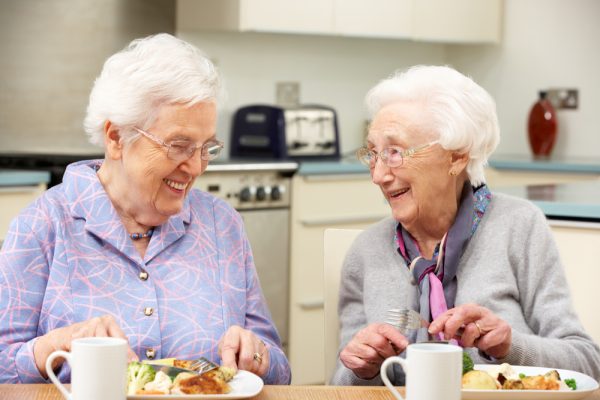
Recently, I was feeling out of sorts. No matter what I did, I couldn’t seem to shake the cloud of grumpiness and low energy that seemed to have settled over me. I was doing all the usual things – working, tending to family and home life, rushing around to what felt like a million kid activities each week – but I didn’t feel like my usual self. I couldn’t figure out what was wrong, until I invited friends over for dinner one night. After a few hours in their company, I felt so much better that the difference was striking. And then I realized: I had been so busy in recent months, I hadn’t truly made the time to socialize. I wasn’t grumpy or burned out, exactly. I was lonely.
It’s no secret that Americans, in particular, are in the midst of what the Surgeon General calls a “loneliness epidemic.” It’s more pronounced for older adults, Gen Z, and Millenials; surprisingly, ages 15-24 seem to be hit the hardest in some ways, socializing up to 70% less than they once did. Most of us have probably seen the signs of this epidemic in people we care about. But while it might seem like this is an easily solvable problem, finding the time and opportunity to regularly create meaningful social interactions for ourselves and our lonely loved ones can be much easier said than done.
The good news is that, as my own experience shows, there’s a solution to loneliness available right at our dinner tables. While you certainly can’t cure loneliness just by sitting down to a meal together, regular shared meals can be a strong step in the right direction:
- Family dinners can be a respite from an overscheduled life. Our colleagues at the MGH Clay Center, Drs, Gene Beresin and Khadijah Booth Watkins, point out that the demands on teenagers’ time have grown considerably in recent years – and that overscheduling may be contributing to teen loneliness. When kids are rushing to balance too many commitments, their brains don’t get the necessary downtime to process emotions, and meaningful face-to-face interactions may be pushed aside in favor of connecting on social media instead. Insisting on regular family meals is one way to make a sliver of space in a teen’s demanding schedule, requiring them to put down the digital devices, step away from the constant pressure to perform, and focus on taking some daily downtime. And of course, you can always offer the chance for teens to invite a friend to share your family meal once in a while – that Friday night pizza might become a powerful antidote to social isolation.
- Research shows that eating with others has multiple health benefits for adults. Older adults in particular may benefit from shared meals; eating alone is associated with poorer nutrition and more physical health risks in seniors. But shared meals can offer mental and physical health boosts to adults of all ages, so in addition to making us feel less lonely in the moment, regularly dining with others could offer more lasting improvements in mood.
- Sharing a meal can help activate our sense of “giving.” Dr. Beresin observes that giving to others in some way, through acts of service or social contributions, activates oxytocin in our brains – a “feel good” chemical. Inviting others to share a meal with us is a tangible act of “giving” that everyone can participate in. Whether through actually cooking the meal, or through setting the table, creating a playlist, offering a game to play, helping serve and clean up, or contributing to the conversation, every person present will give something to the experience. That communal experience of giving to each other throughout the meal helps us feel good about ourselves, and more connected to others.
- Eating with others enhances relationships. When we eat together, we may actually be engaging in an activity that will strengthen our bonds in unique ways. Studies have demonstrated that even adults who aren’t related to one another show an enhanced ability to work together after sharing a meal. And some research suggests that new parents who prioritize family meals are more satisfied with their relationships than those who don’t eat together; parents of older kids also tend to report higher levels of family functioning and stronger relationships when the household eats together.
- Family meals can build resilience while combating loneliness. Dr. Beresin shares his family’s experiences with multi-generational meals, where his mother was able to tell stories about her life during the Great Depression. These types of family stories help ground kids in the feeling of understanding their place in the world, and offer life lessons in overcoming adversity. So inviting older family members to share a meal with you may not only help stave off loneliness, but also build a sense of resilience in the younger generations at the table.
- Even virtual meals can be good for the soul. During the COVID pandemic, we offered a virtual toolkit for families who wanted to eat together, but couldn’t gather due to safety restrictions. Those experiences were so popular that we’ve continued adding virtual connection options, like our Thanksgiving Virtual Care Package, to help families share elements of their meals from afar. While face-to-face contact will always have advantages that can’t be replicated onscreen, technology does offer opportunities to connect and socialize when physical togetherness isn’t an option.
As summer begins, improved weather and a change from school year schedules could offer more chances to reach out to others and share a meal. Give it a try, and see how more frequent gatherings might help someone in your life feel a little less lonely!
Food
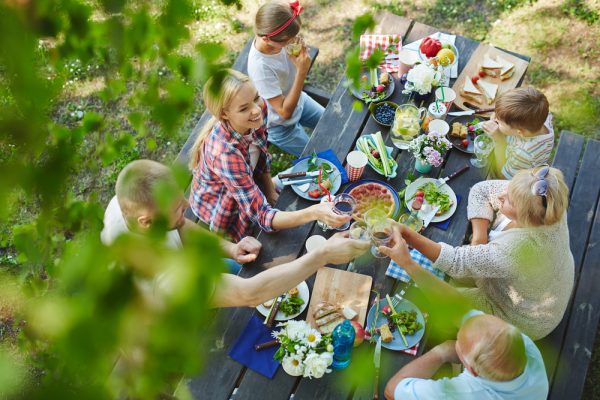
Sharing a meal with others doesn’t have to be fussy. Get some inspiration for easy, anywhere, anytime dinners with our Family Picnic series!
Fun

Try the Cook-Along Challenge to help you forge a family dinner connection with someone far away.
Conversation
Try these collections of conversation starters to help dive into topics like social media, communication, and resilience.
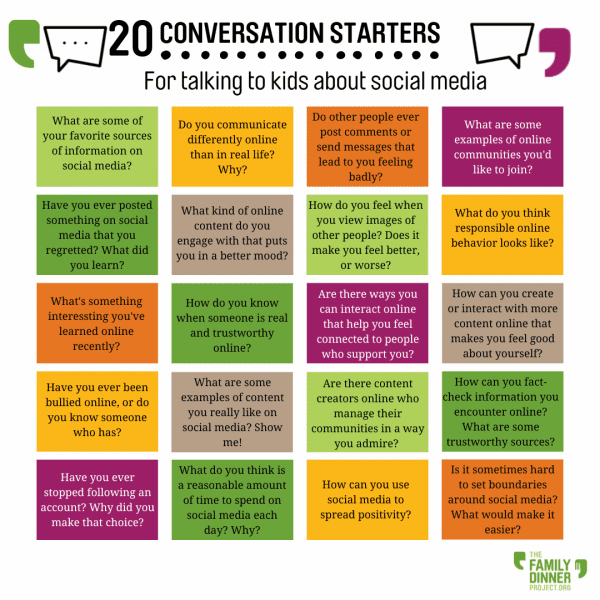
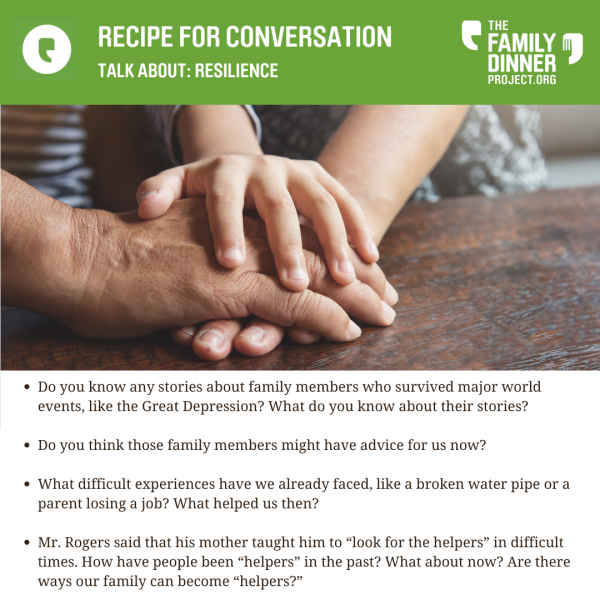
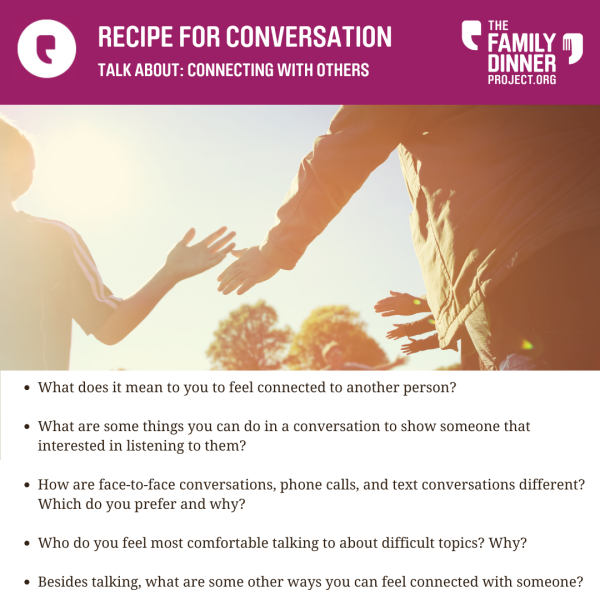
Recent Newsletters
- Ask The Family Dinner Project - February 2026
- Warming Up Winter - January 2026
- Home, and Homemade, for the Holidays - December 2025
- Thanksgiving Traditions, Old and New - November 2025
- Food as Comfort and Care - October 2025
- The State of Family Dinner - September 2025
- Back to School Dinner Success - August 2025
- What’s Your Meal Planning Personality? - July 2025
- A New Guide to Gathering - June 2025
- Celebrating 15 Years of The Family Dinner Project - May 2025
- New Research: Family Dinners Boost Happiness - April 2025
- Just the Two of Us - March 2025
